When the world mourned over dead Syrian toddler Aylan Kurdi, who washed up on a Turkish beach in early September, one Syrian man was not tormented. He had lost three children in an air strike some time before.
“The boy looked like a sleeping angel. I wish my children had died like that,” the grief-stricken father told Abdul Wahab Almohammad Agha, the director of humanitarian organization Help Syria, at a refugee camp in Jordan in September. “Aylan’s father is a lucky guy compared to me. I died every single day watching my baby slowly and painfully succumb to death over two months.”
Help Syria was established in 2013 by Almohammad Agha, a Ph.D. candidate at Dongguk University’s college of law in Seoul. The group sends humanitarian aid, runs awareness campaigns and operates educational, cultural and sports programs. For the last two years, the director has traveled to Syria, Turkey, Lebanon and Jordan to help his compatriots.
“The boy looked like a sleeping angel. I wish my children had died like that,” the grief-stricken father told Abdul Wahab Almohammad Agha, the director of humanitarian organization Help Syria, at a refugee camp in Jordan in September. “Aylan’s father is a lucky guy compared to me. I died every single day watching my baby slowly and painfully succumb to death over two months.”
Help Syria was established in 2013 by Almohammad Agha, a Ph.D. candidate at Dongguk University’s college of law in Seoul. The group sends humanitarian aid, runs awareness campaigns and operates educational, cultural and sports programs. For the last two years, the director has traveled to Syria, Turkey, Lebanon and Jordan to help his compatriots.
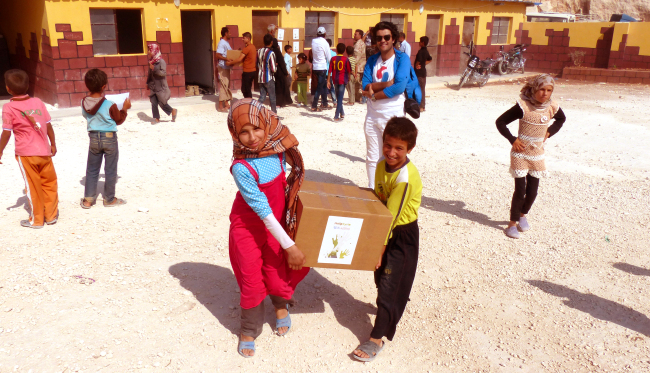
The civil war that erupted against Syrian President Bashar al-Assad in March, 2011, as part of Arab Spring, has killed over 250,000 people and created some 4.4 million refugees and 9 million internally displaced persons. Fleeing government forces and the Islamic State, they have entered neighboring Turkey, Lebanon, Jordan, Egypt and Iraq in droves.
According to the United Nations High Commissioner for Refugees, registered Syrian refugees have so far reached 2.3 million in Turkey, 1.07 million in Lebanon, 633,000 in Jordan, 245,000 in Iraq and 124,000 in Egypt.
More than 1 million Syrians live in Turkey’s refugee camps, receiving food, shelter, education and health care, while the rest live in cities and towns, where jobs are scanty, Almohammad Agha told The Korea Herald last week.
“The situation in Lebanon was the most difficult due to the unstable political climate, with risks of kidnapping, sexual assault and death,” he said. “As there is no refugee camp, they live in poverty on the streets or private properties in a pack of 50 to 60 tents.”
Jordan is a bit safer, according to the director, with some 130,000 living in camps and the remainder scattered across the country. Those in Iraq are ethnic minority Kurds from northern Syria.
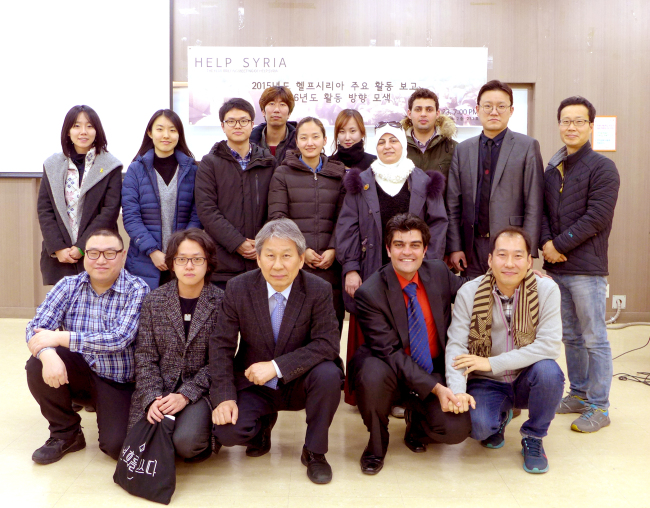

A former law student at the University of Damascus, Almohammad Agha came to Korea in 2009 to pursue graduate studies. His hometown Raqqa has been seized by the IS, and his brothers escaped abroad for safety.
“Syria before the war was a safe and prosperous country,” he noted. “People walked the streets freely, women took taxis without fear and different religions coexisted peacefully.”
The country today has become lethally divided along religious, ethnic and ideological lines, he added, pointing out that treasures of historical heritage had been vandalized by the government and IS.
“Even my old friends changed completely and acted strangely when I met them on my last trip. They were open-minded and happy before, but became extremely conservative and suspicious.”
Some outsiders are curious why citizens revolted against Bashar al-Assad, but it was the inevitable fallout of enduring 45 years of father-to-son dictatorship under late President Hafez al-Assad (1930-2000) and his heir, the activist explained.
The despotic duo expropriated national assets as their own, and gave little to the people: “Even with our meager allocations, we were relatively well off. If our country’s wealth had been fairly distributed, we would have lived better than the people of Dubai.”
The Assads craved being worshipped like gods, Almohammad Agha said. Their portraits occupied public spaces, restaurants and shops similar to North Korea. The secret police watched and recorded everyone’s every move, kidnapping, torturing and killing potential dissenters.
“Corruption was rampant. It was a mafia government. Even if you graduated from a good school, you could not get a good job without bribing the secret police, bureaucrats or army officers.”
Due to the police surveillance and military suppression, Bashar al-Assad’s regime did not fall as its regional allies did during the Arab Spring.
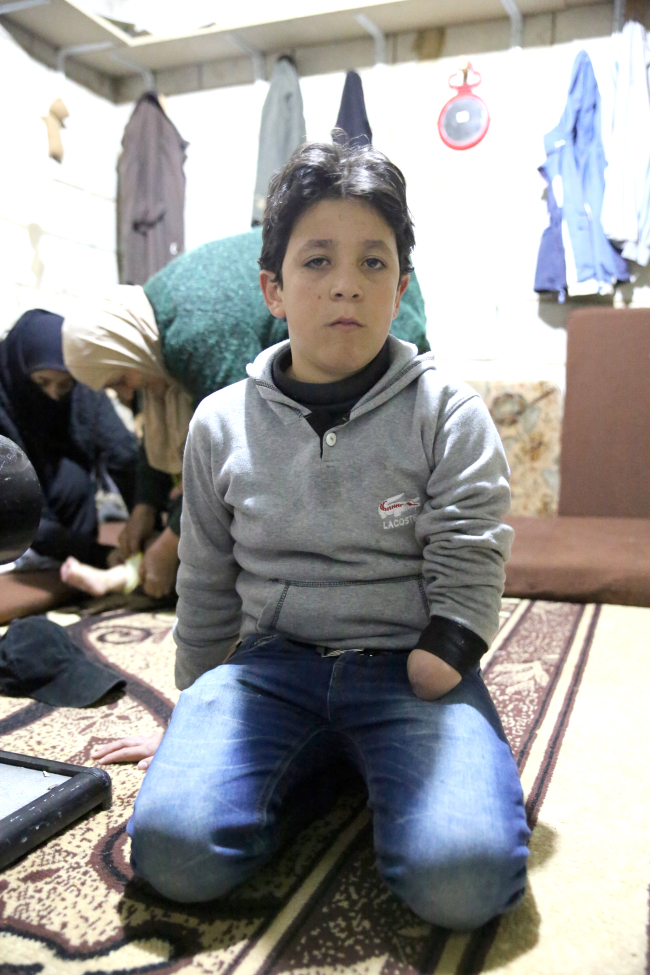
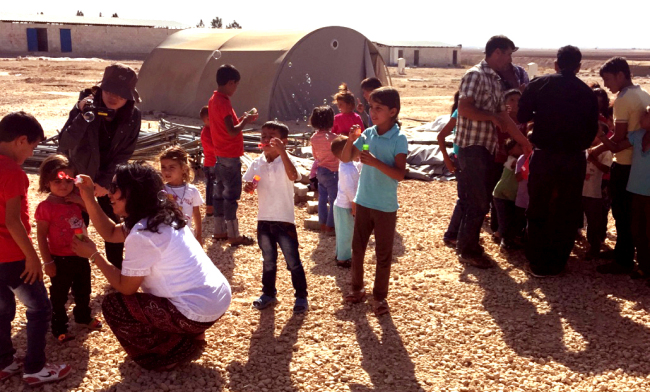
With 60 million refugees worldwide and 13.5 million from Syria alone, the world is suffering its worst refugee crisis since World War II. In 2013, the Korean government enacted the Refugee Act to accept more international asylum seekers following the UNHCR recommendations.
Given the government’s plan to take in roughly 30 refugees a year, critics have argued for an increase, noting that the “global standard” was nine times that of Korea. So far, some 9,150 people have applied for asylum in Korea and 330 were granted refugee status; nearly 850 Syrians have sought asylum in Korea and 3 were granted it.
Highlighting the migrants’ role in boosting the economy and diversifying society, Almohammad Agha cited Germany for its bold moves to receive over 57,000 of his compatriots out of 104,000 applicants.
“It is Syria that needs help today, but it could be any country tomorrow,” he said. “Syria helped Korea during the Korea War (1950-53) with military and relief aids. We may not be able to give back right away, but your help will come around someday.”
The director added, “Syrians need medical supplies, food and clothes. But what they need the most is your compassion. We are all the same human beings. Despite our different looks, our smiles and tears are the same.”
By Joel Lee (joel@heraldcorp.com)
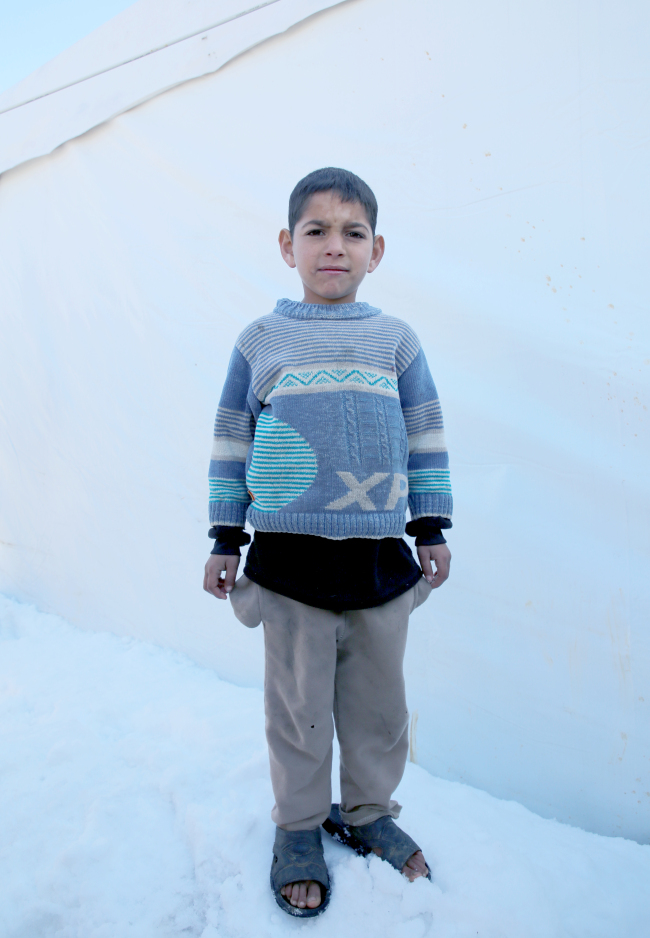

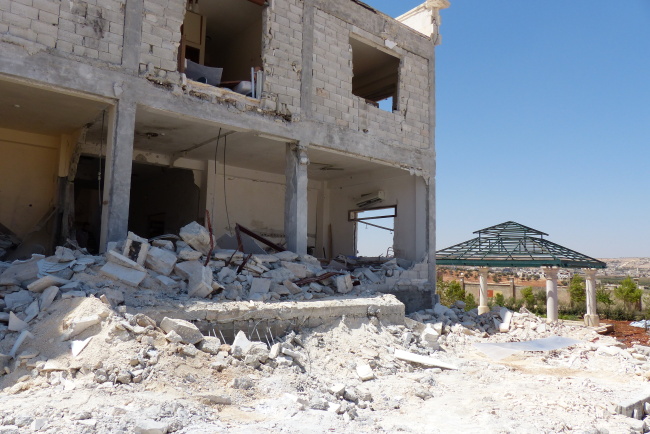

-
Articles by Korea Herald







![[Weekender] How DDP emerged as an icon of Seoul](http://res.heraldm.com/phpwas/restmb_idxmake.php?idx=644&simg=/content/image/2024/04/25/20240425050915_0.jpg&u=)



![[KH Explains] No more 'Michael' at Kakao Games](http://res.heraldm.com/phpwas/restmb_idxmake.php?idx=644&simg=/content/image/2024/04/28/20240428050183_0.jpg&u=20240428180321)







![[Herald Interview] Mistakes turn into blessings in street performance, director says](http://res.heraldm.com/phpwas/restmb_idxmake.php?idx=652&simg=/content/image/2024/04/28/20240428050150_0.jpg&u=20240428174656)
